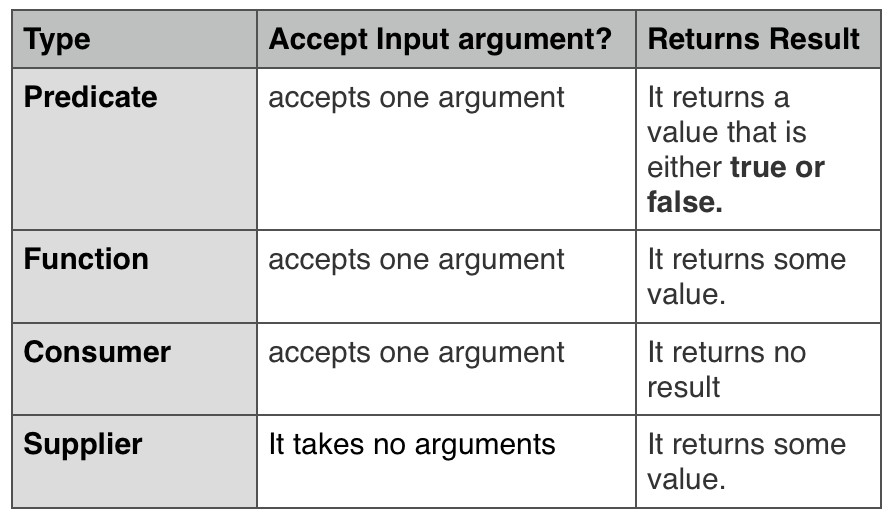Functional interfaces provide target types for lambda expressions and method references. Each functional interface has a single abstract method, called functional method for that functional interface, to which the lambda expression’s parameter and return types are matched or adapted.
There are around 40+ functional interfaces under java.util.function package.In this blog, we will discuss the important ones:Predicate, Consumer, Function, and Supplier.

Predicate
A predicate is a statement that may be true or false depending on the values of its variables. It can be thought of as a function that returns a value that is either true or false.

Let us execute the below code:

Output:
true
false
Predicates are also used to filter collections, for example:

Output:
[Rochit, Praveen]
Function
This functional interface represents a function that accepts one argument and produces a result. One use, for example, it’s to convert or transform from one object to another. Since it’s a functional interface, you can pass a lambda expression wherever a Function is expected.
The input parameter type and the return type of the method can either be same or different.


Output:
10
5
Consumer
This functional interface represents an operation that accepts a single input argument and returns no result. The real outcome is the side-effects it produces. Since it’s a functional interface, you can pass a lambda expression wherever a Consumer is expected.



The side-effect here, it’s the updating of the employee’s name, so the output is:
Praveen
Supplier
This functional interface does the opposite of the Consumer, it takes no arguments but it returns some value. It may return different values when it is being called more than once. Since it’s a functional interface, you can pass a lambda expression wherever a Supplier is expected.


Output:
20
Let us look into the entire program:

Output:
true
false
[Rochit, Praveen]
10
5
20
Praveen
Other Important Java 8 Related Articles
